The Furniture: First Cow and the Architecture of Settlement
 Wednesday, July 15, 2020 at 1:00PM
Wednesday, July 15, 2020 at 1:00PM
Daniel Walber's series on Production Design. Click on the images to see them in magnified detail.
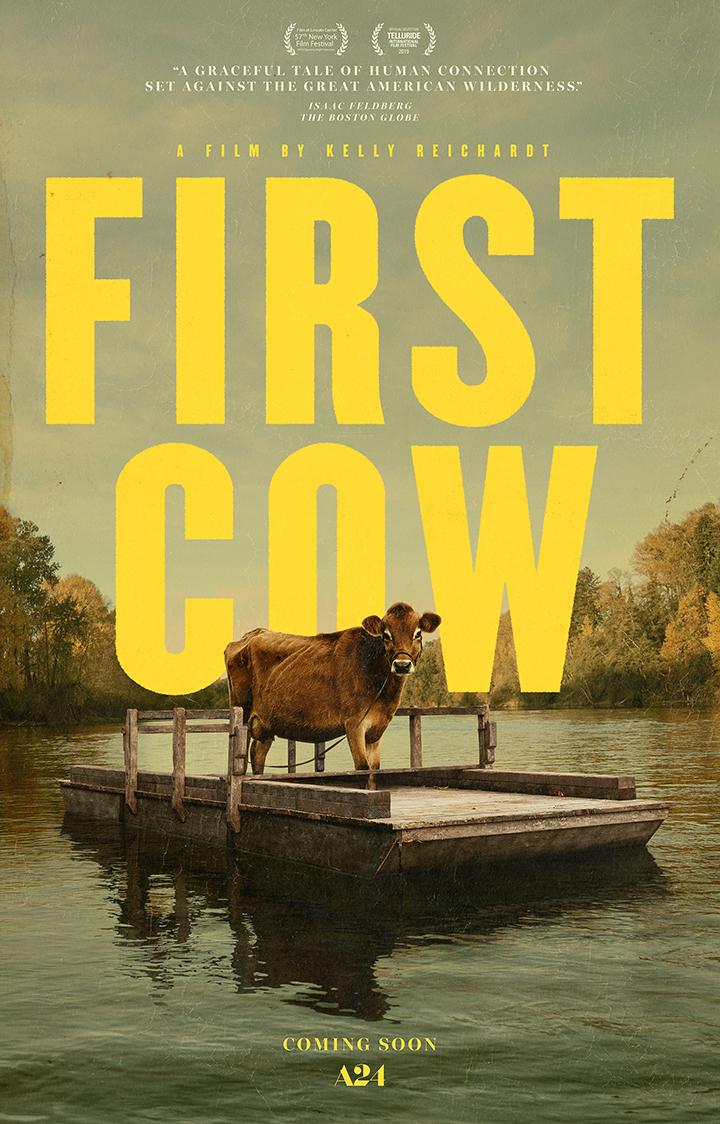 First Cow is a mossy and melancholy tragedy. Kelly Reichardt makes the failure of her protagonists clear from the start, showing us their skeletons before introducing them in the flesh. There’s a morbid air to everything that follows, though it’s softened by an atmosphere of tremendous beauty. It’s the best ASMR video of the year.
First Cow is a mossy and melancholy tragedy. Kelly Reichardt makes the failure of her protagonists clear from the start, showing us their skeletons before introducing them in the flesh. There’s a morbid air to everything that follows, though it’s softened by an atmosphere of tremendous beauty. It’s the best ASMR video of the year.
Cookie Figowitz (John Magaro) and King-Lu (Orion Lee) clearly think that they are in a land of endless possibility: Oregon Country in the 1820s. Decades before a settled border, the USA and the British Empire “jointly occupied” the Pacific Northwest, in accord with an 1818 treaty agreement that did not even acknowledge the presence of indigenous people.
This is the context for King-Lu’s utterly false observation:
This is still new - more nameless things around here than you could shake an eel at… History isn’t here yet.”
Cookie disagrees, saying that to him “it seems old.” It’s a crucial early conversation, which sets up some difference in their characters. But it’s hard to shake the notion that these two are really just opposite sides of the same coin. Both men taken in by the myth of a lush, ancient landscape without names or living languages, densely forested but devoid of human culture - and with riches ripe for the taking by the common settler, if only he gets there in time.
And they never learn otherwise. Cookie and King-Lu dream of beaver glands and hotel bakeries until their last, somnolent breaths. As such, this mythology must be busted elsewhere, in large part via the work of production designer Anthony Gasparro and art director Lisa Ward. The colonial filter through which most of First Cow’s characters see their environment is quietly dismantled through an artful exhumation of colonial architecture.
Take, for example, the arrival of the titular cow. The scene begins with some close-ups of baskets, upon which local indigenous women are cracking nuts (see what I mean about ASMR?). It’s a symbol of, among other things, a continuity of local craftsmanship that stretches back well before the arrival of the settlers. There are plentiful names, languages, cultures and histories already present.
Then Reichardt cuts to the dock. It’s small and nondescript, only big enough to handle one or two cows. Granted, it only needs to support the one. To King-Lu and Cookie, this first cow is a sign that they’ve not yet missed their moment, that this is still a time of “before.” But to the women on the shore, the landscape has already irrevocably changed.
It is even more obvious in the fort, of course. The company flag is a clear symbol of the arrival of imperial commerce. The architecture itself poses questions. When looking at a wall made of sticks and a cabin made of logs, do you focus on the unfinished material or the military form? Is this a structure of “before” or “after”?
The oddest example is one of the nearby shacks, fashioned from local wood that hasn’t even been stripped of its bark. It looks almost like a natural outgrowth of the forest. Except, of course, for the fact that it’s not. It’s a striking metaphor for the falseness of a settler colonialism that will yield generations of “mountain men,” with their endless claims of male stewardship and ownership of the “virgin” landscape.
Still, King-Lu and Cookie might look at these shacks and see the possibility of their own entrepreneurial success. But it looks quite different in the home of the Chief Factor (Toby Jones), whose furniture makes Cookie seem like little more than a servant. And it is tragically poetic that his last-ever bake will be a clafoutis for which he will never be paid, on command of the wealthiest man in town.
King-Lu, meanwhile, is treated as a total non-entity. His opinion on the beaver market is met with confusion and silence by the Chief Factor and the Captain (Scott Shepherd). Of course, this does not prevent the Chief Factor from waxing poetic about the Chinese market. To him, China is yet another abstraction of imperial capitalism. King-Lu, standing in front of him in North America, cannot exist.
The Chief Factor’s interiors are the final proof that there is nothing “before” about Oregon Country, even in the 1820s, nor is it a place of openness and possibility. In fact, things only get worse. After the border was sorted out in 1846, the Provisional Government of Oregon wrote its white supremacy into law by banning the entry of Black people into the territory. In 1858, an Exclusion Law explicitly denied the right to vote to Chinese residents, the first of a long series of “exclusion laws” that federally prohibited Chinese immigration 1882 and banned Chinese property ownership in Oregon in 1923.
By then, Cookie and King-Lu’s dreams would have been long dead, but it puts their folly in even starker perspective. Getting the milk for free under cover of night can bring in a fair amount of cash, but would never be enough for King-Lu and Cookie to buy a royal cow - so to speak. The cow and her milk have already been commodified, the independent artfulness of Cookie’s biscuits notwithstanding. At the end, when the Chief Factor puts his prize cow in a pen, he does little more than make this explicit. Cookie and King-Lu’s small-time dreams were never really welcome in Oregon.



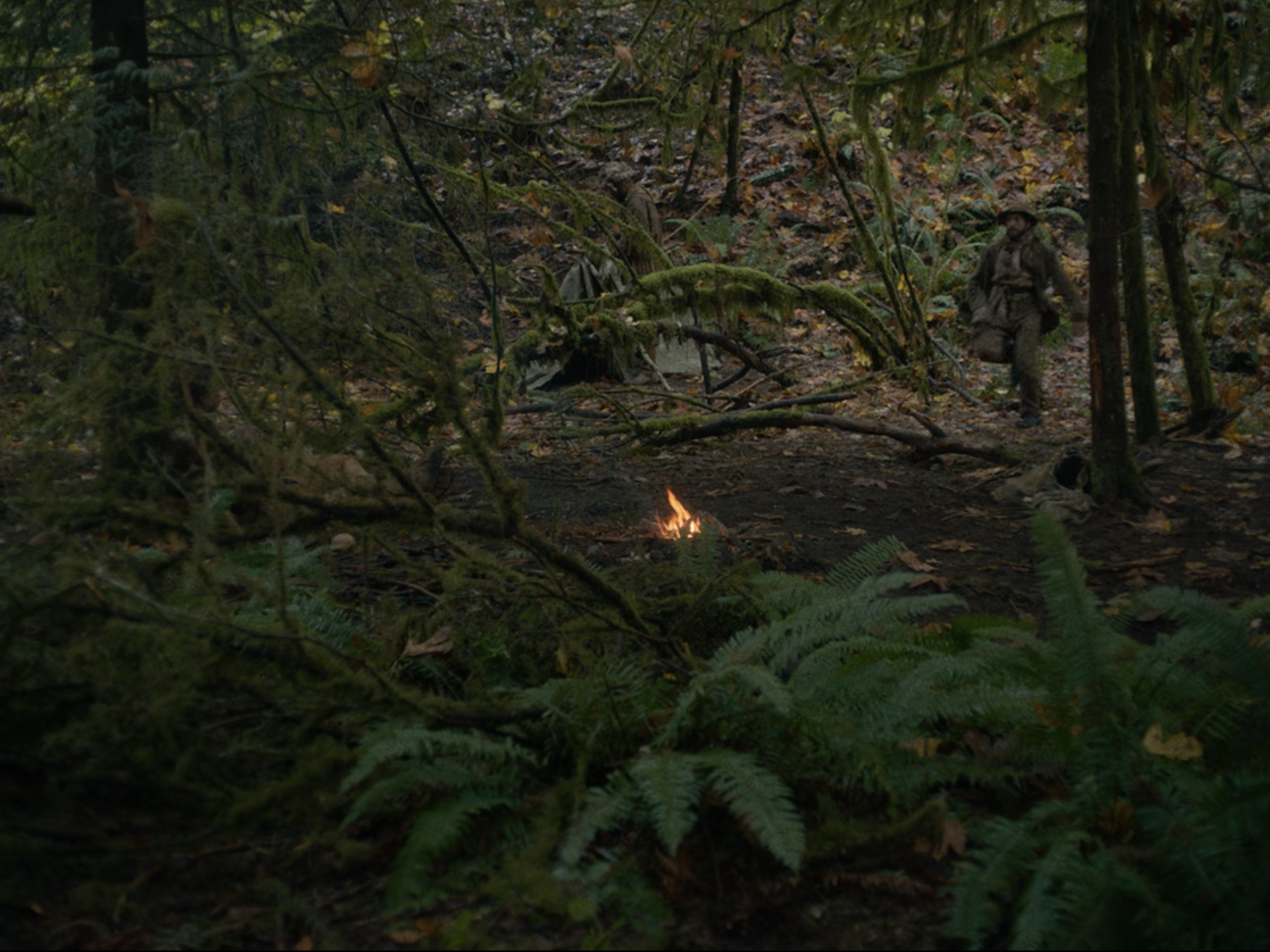
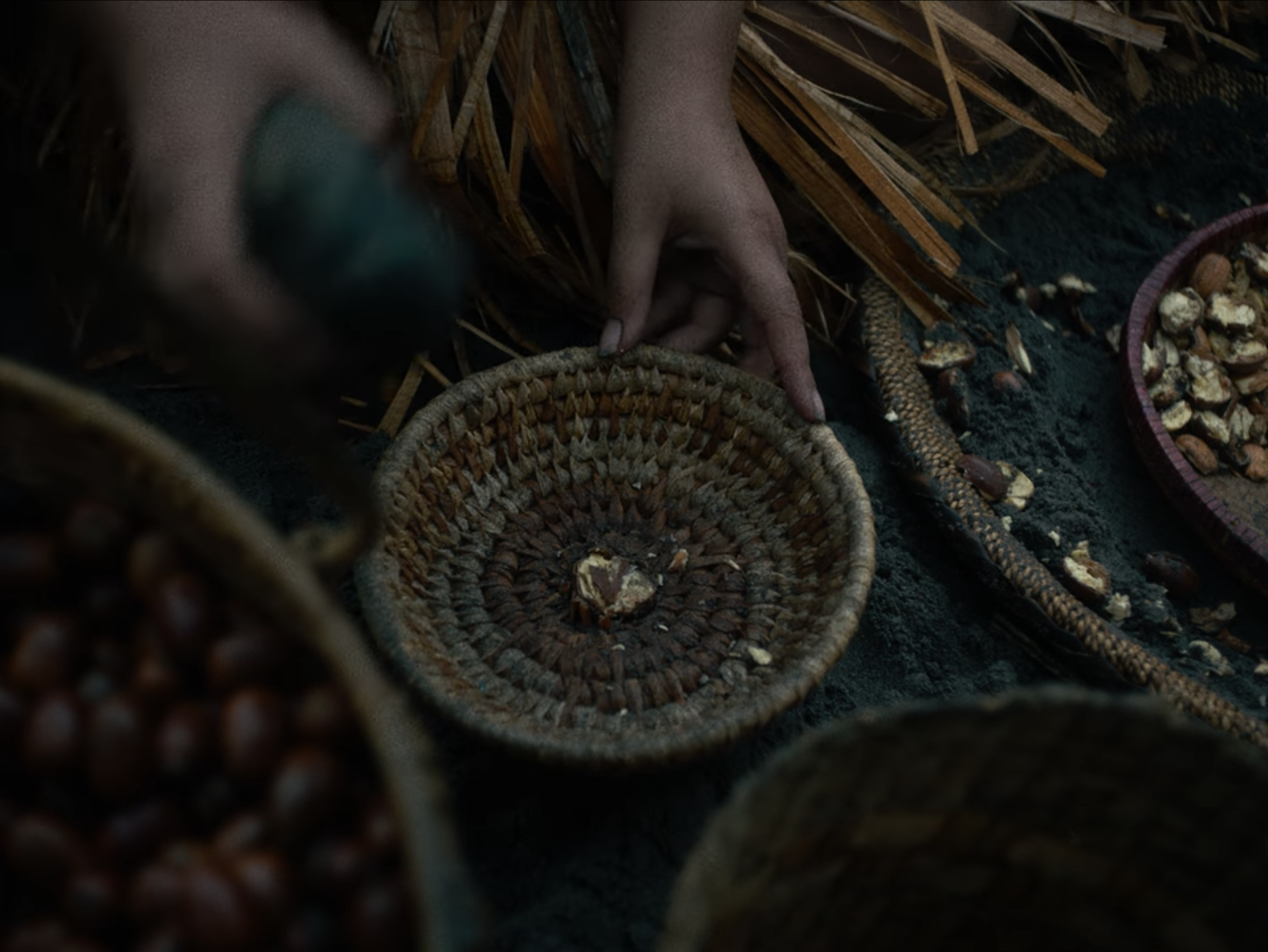
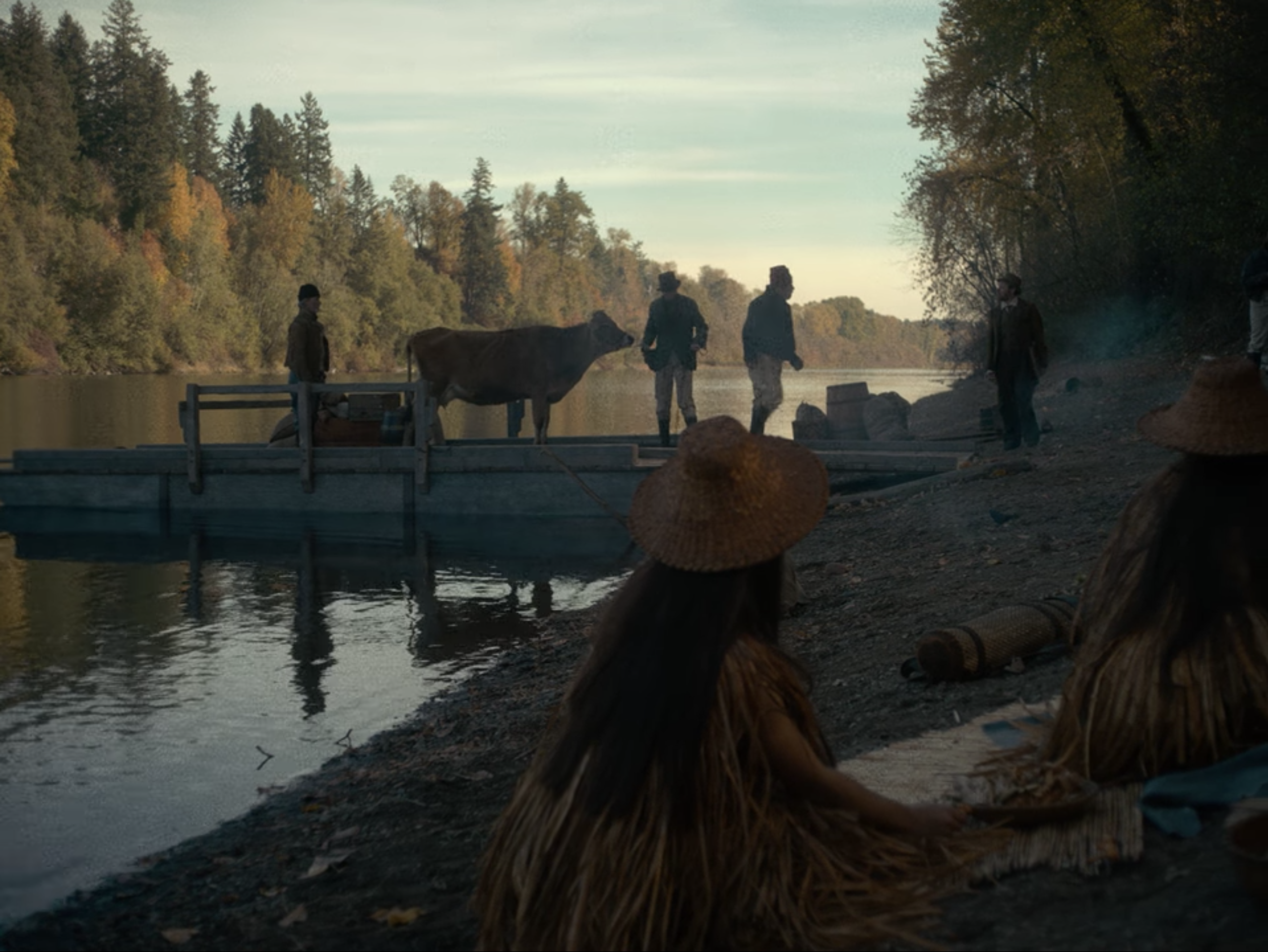
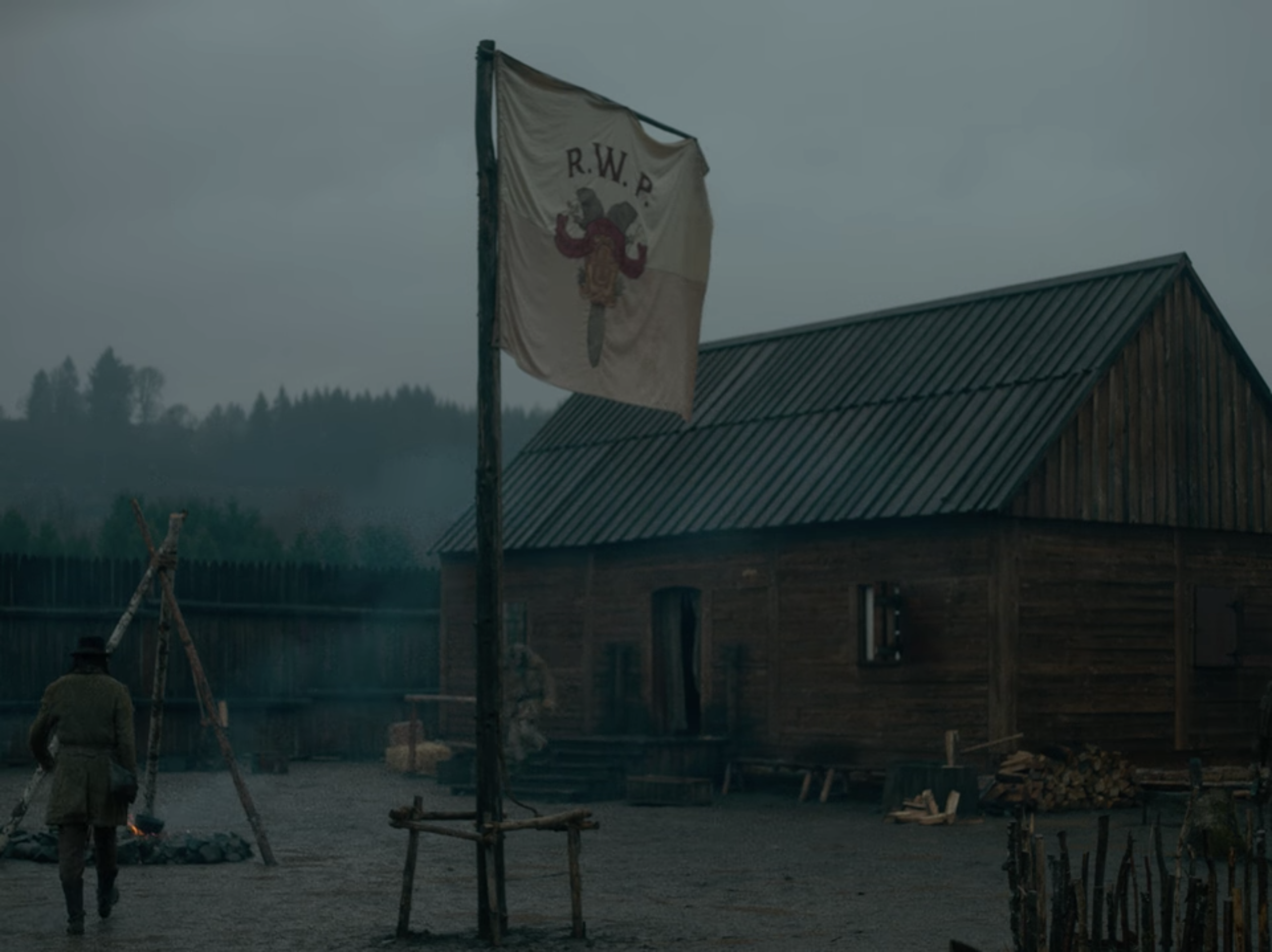
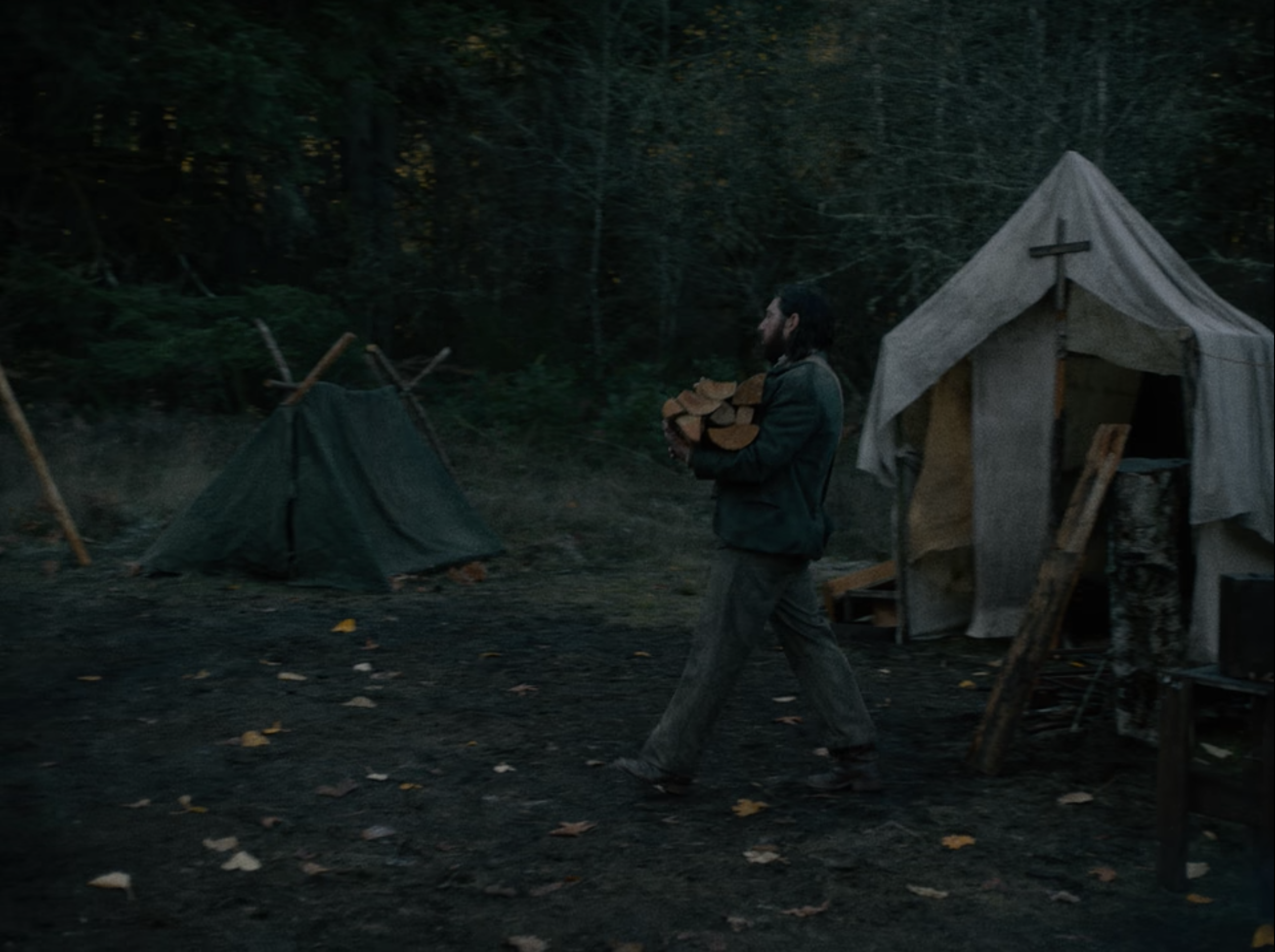
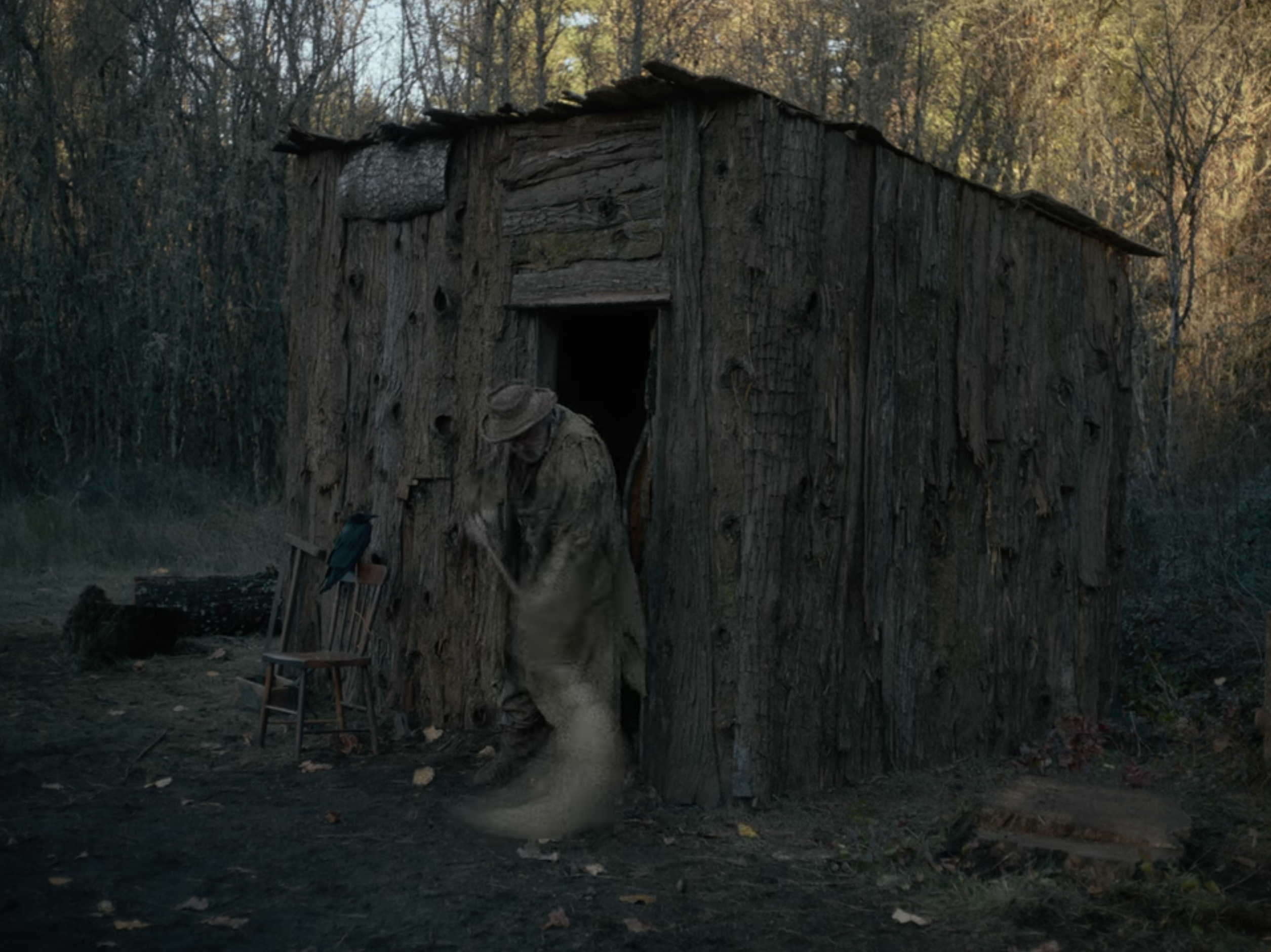
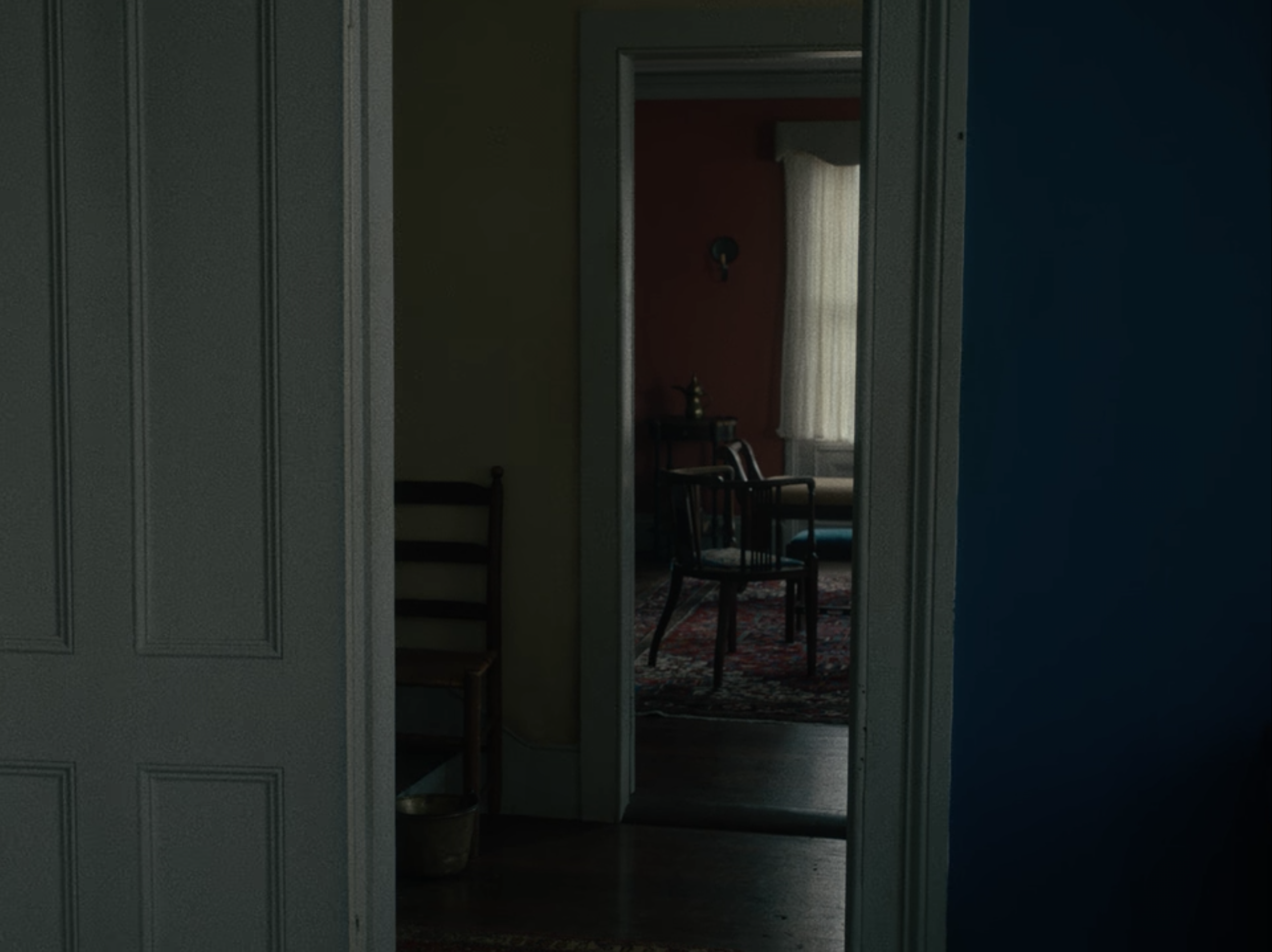
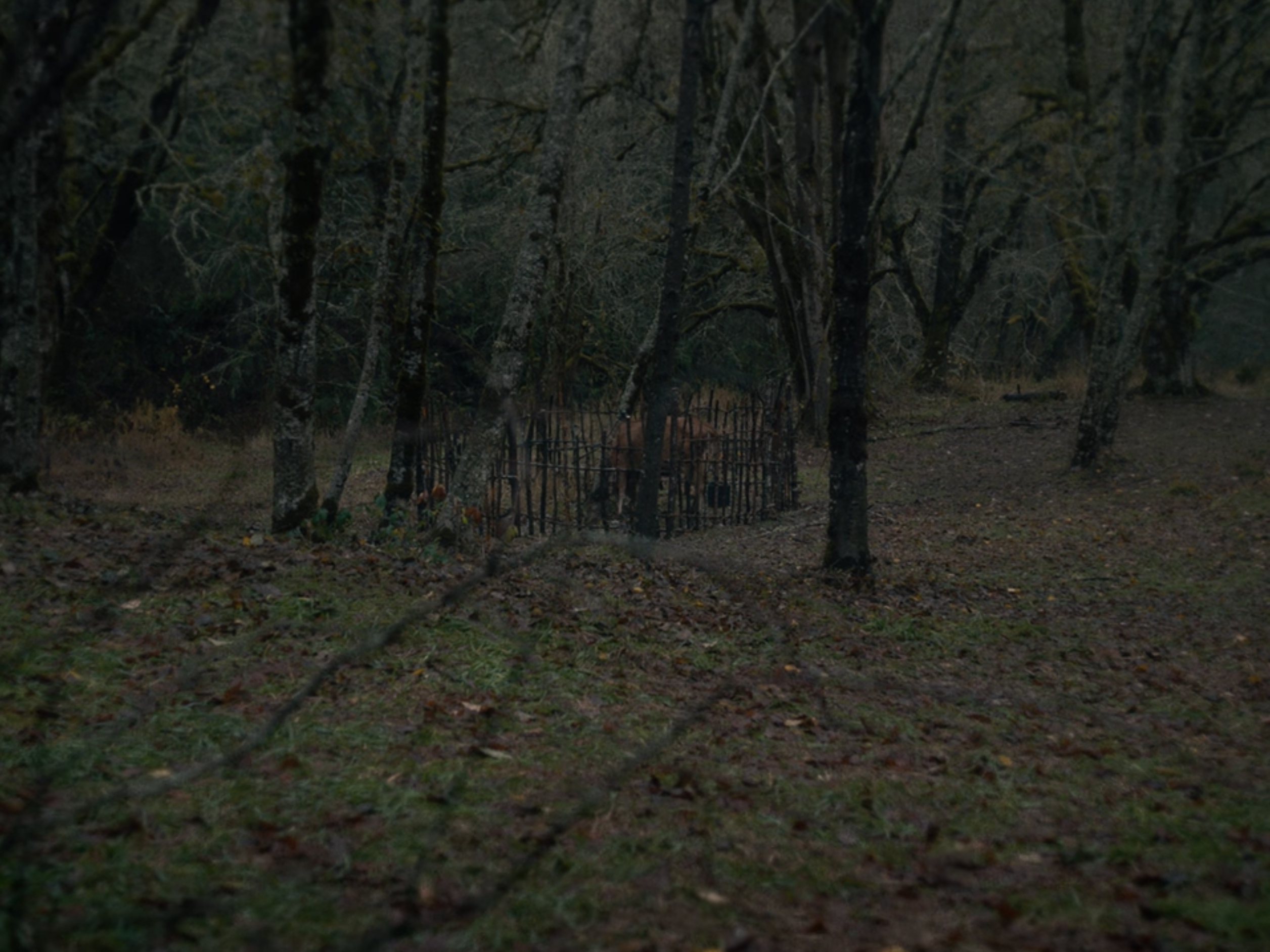
Reader Comments (4)
Thanks for this post, Daniel. Wonderfully observed, meticulously detailed.
I think First Cow, which I saw yesterday on a streaming platform, might be my favorite film of the year. But then it is preaching to the choir since I love all of Kelly Reichardt's films (even Certain Women). That line from William Blake's 'Proverbs from Hell' clues the viewers on what's to come in the course of the almost 2-hour film. Reichardt tenderly, almost lovingly examines life's one true thing: everlasting friendship. I agree that Reichardt's judicious use of artifacts, physical attributes with their own specific materialities, and their unobtrusive visual presentations are all the more effective, nay touching because they do not call attention to themselves other than as elements that create a distinct place out of a still-wild territory in the Pacific Northwest made tame by early colonisation and capitalism: a lived-in landscape.
In this tale peopled predominantly by all shades of masculinities, the cow is the leading lady. No wonder the throwaway reference to women are likened to being a commodity: fetishised and coveted for their pre-ordained value.
With the discovery of two skeletal bodies at the onset of the film, there is an air of foreboding and of imminent tragedy one senses is going to happen. I like the settings a lot for what they represent in the story: the physical, (the landscape looks legitimately pre-industrialised) temporal (nighttime is only illuminated by the moon; daytimes looked cloudy), and emotional (Cookie's slow smiles when truly delighted, King-Lu's passive acceptance that his ethnicity makes him forever an Orientalised Other, the 'civilised' men's quick-to-anger dispositions; the quotidian practices of indigenous and non-indigenous dwellers). Even Reichardt's deployment of gifted actors to small-ish/cameo parts is well-integrated: René Auberjonois' silent gaze from an open window speaks of dwindling hopes in the land promise, Ewan Bremner's über-masculinity as basically manifest destiny, and Lily Gladstone's quiet grandeur depicting not just a marital but also an economic exchange--she looks like a serene Madonna (the Mother of Christ, not the Material Girl). Not that they are reducible to props in this heart-rending narrative. They all contribute unassuming degrees of authenticity to the proceedings through their lived-in characterisations.
The place serves as a stage that shows the contradictory nature of settler-colonialism. It is muddy with perennially overcast skies but offering us a glimpse of what the place was before anthropogenic inputs irrevocably changed the landscape, an exciting yet cautious optimism to what early entrepreneurship can bring, and committing 'gentle' crime during calm and peaceful evenings.
That ending is quietly heartbreaking: that image bookends the present-day discovery of what remains of the skeletal bodies of King-Lu and Cookie. The small gesture seen in the final seconds now makes sense in relation to the first part of the film. It felt like love.
Thanks for spotlighting this film's subtle elements, Daniel. First Cow may not be to anyone's taste, but like me, once you happen to share Reichardt's wavelengths in cinematic storytelling, you will love this too.
Love this analysis and love this movie.
Loved reading this. I’ll be thinking about everything you wrote the next time I watch First Cow.
Caught this film earlier this week and it's amazing. Easily my fav of the year so far and Reichardt's best (I've seen all but Old Joy.)
I hope in someone it's remembered year end (Feb 2021) cause it's deserving of recongnition.